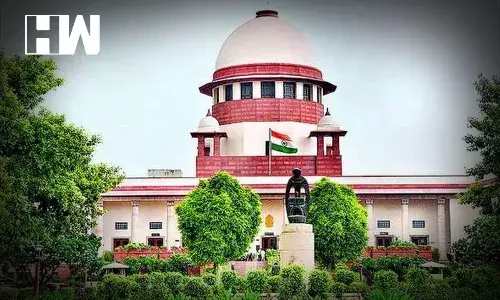New Delhi: The Supreme Court has used stern words against the gangster Abu Salem’s petition of his jail sentence exceeding 25 years. The SC rejected the Union Home Ministry’s stance that the plea is premature. The Supreme Court also expressed its displeasure with the Centre’s request for a decision in the case.
Justice SK Saul said to Home Ministry, “Don’t lecture the judiciary. We do not take it kindly when you tell us to decide something which you have to decide.”
The Judge said that the Home Secretary is nobody to tell us to decide the issue.
The SC said to the centre that they should be unequivocal in what they want to say. “We do not like sentences in the Home Ministry affidavit like ‘we will take a decision at an appropriate time’,” said the judges.
In its affidavit, the Home Ministry said that it is not the appropriate time to take a call on Abu Saleem’s case, for the government. The Supreme Court may decide on this.
Abu Saleem’s petition was being heard by Justices Sanjay Kishan Kaul and MM Sundresh. Abu is a convict in the 1993 Bombay blast case. India had guaranteed to Portugal courts that his jail sentence cannot exceed 25 years.
Union Home Secretary Ajay Bhalla said to Supreme Court that the government was bound by the assurance given to the Portuguese government by then-Deputy Prime Minister LK Advani that any sentence imposed on Abu Salem would not exceed 25 years.
Bhalla said the assurance would come into effect after the 25-year period ending on November 10, 2030.
“It is respectfully submitted that the Government of India is bound by the assurance dated December 17, 2002. The period of 25 years, which is mentioned in the assurance, will be abided by the Union of India at an appropriate time subject to the remedies which may be available,” the Home Secretary said.
Bhalla told to court, “Abu Salem’s claim that India is not complying with the assurance is “premature and based on hypothetical surmises” and can never be raised in present proceedings.”
He said that judiciary is independent and can decide on all the cases according to the law “without in any way being bound by any position taken by the executive”.
With the affidavit filed by CBI, stating that that the assurance given by India to Portugal is not binding on Indian courts, the Supreme Court was not satisfied. The court had sought a response from the Centre on Abu Salem’s plea on February 2.
As an independent media platform, we do not take advertisements from governments and corporate houses. It is you, our readers, who have supported us on our journey to do honest and unbiased journalism. Please contribute, so that we can continue to do the same in future.

